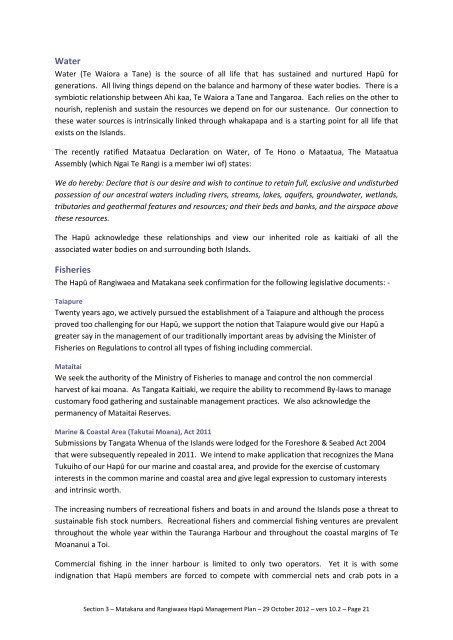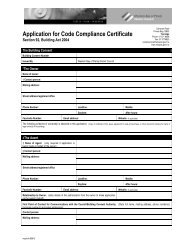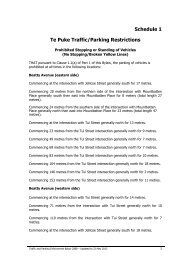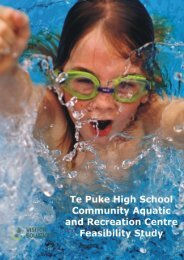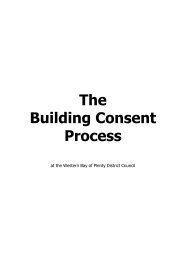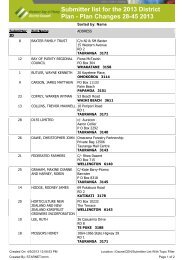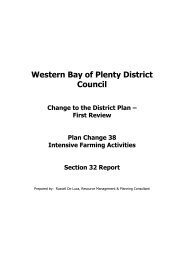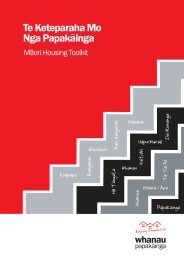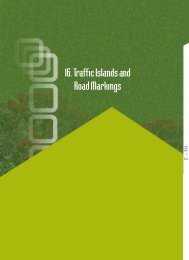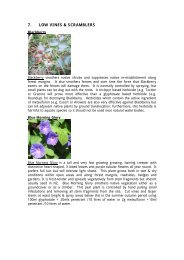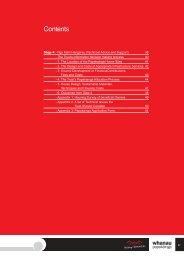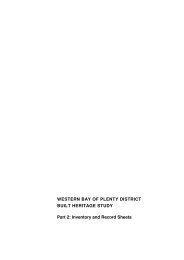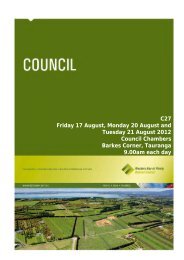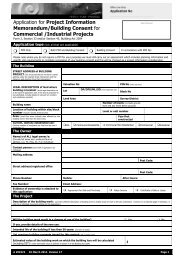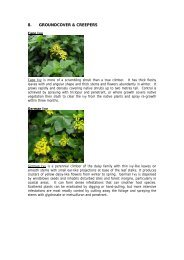Harakeke, Pingao, Kawakawa, Karamu These taonga plants have ...
Harakeke, Pingao, Kawakawa, Karamu These taonga plants have ...
Harakeke, Pingao, Kawakawa, Karamu These taonga plants have ...
You also want an ePaper? Increase the reach of your titles
YUMPU automatically turns print PDFs into web optimized ePapers that Google loves.
Water<br />
Water (Te Waiora a Tane) is the source of all life that has sustained and nurtured Hapū for<br />
generations. All living things depend on the balance and harmony of these water bodies. There is a<br />
symbiotic relationship between Ahi kaa, Te Waiora a Tane and Tangaroa. Each relies on the other to<br />
nourish, replenish and sustain the resources we depend on for our sustenance. Our connection to<br />
these water sources is intrinsically linked through whakapapa and is a starting point for all life that<br />
exists on the Islands.<br />
The recently ratified Mataatua Declaration on Water, of Te Hono o Mataatua, The Mataatua<br />
Assembly (which Ngai Te Rangi is a member iwi of) states:<br />
We do hereby: Declare that is our desire and wish to continue to retain full, exclusive and undisturbed<br />
possession of our ancestral waters including rivers, streams, lakes, aquifers, groundwater, wetlands,<br />
tributaries and geothermal features and resources; and their beds and banks, and the airspace above<br />
these resources.<br />
The Hapū acknowledge these relationships and view our inherited role as kaitiaki of all the<br />
associated water bodies on and surrounding both Islands.<br />
Fisheries<br />
The Hapū of Rangiwaea and Matakana seek confirmation for the following legislative documents: -<br />
Taiapure<br />
Twenty years ago, we actively pursued the establishment of a Taiapure and although the process<br />
proved too challenging for our Hapū, we support the notion that Taiapure would give our Hapū a<br />
greater say in the management of our traditionally important areas by advising the Minister of<br />
Fisheries on Regulations to control all types of fishing including commercial.<br />
Mataitai<br />
We seek the authority of the Ministry of Fisheries to manage and control the non commercial<br />
harvest of kai moana. As Tangata Kaitiaki, we require the ability to recommend By-laws to manage<br />
customary food gathering and sustainable management practices. We also acknowledge the<br />
permanency of Mataitai Reserves.<br />
Marine & Coastal Area (Takutai Moana), Act 2011<br />
Submissions by Tangata Whenua of the Islands were lodged for the Foreshore & Seabed Act 2004<br />
that were subsequently repealed in 2011. We intend to make application that recognizes the Mana<br />
Tukuiho of our Hapū for our marine and coastal area, and provide for the exercise of customary<br />
interests in the common marine and coastal area and give legal expression to customary interests<br />
and intrinsic worth.<br />
The increasing numbers of recreational fishers and boats in and around the Islands pose a threat to<br />
sustainable fish stock numbers. Recreational fishers and commercial fishing ventures are prevalent<br />
throughout the whole year within the Tauranga Harbour and throughout the coastal margins of Te<br />
Moananui a Toi.<br />
Commercial fishing in the inner harbour is limited to only two operators. Yet it is with some<br />
indignation that Hapū members are forced to compete with commercial nets and crab pots in a<br />
Section 3 – Matakana and Rangiwaea Hapū Management Plan – 29 October 2012 – vers 10.2 – Page 21


